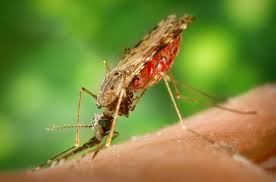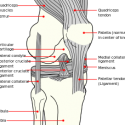Author Interviews, Brigham & Women's - Harvard, Cannabis, JAMA, Lipids, Pediatrics / 06.04.2015
Pediatric Transition To Adult Lipid Control Guidelines Need Clarification
 MedicalResearch.com Interview with:
Holly Gooding, MD, MS
Harvard T.H. Chan School of Public Health
Instructor in Pediatrics at Harvard Medical School
Division of Adolescent/Young Adult Medicine, Boston Children’s Hospital Division of General Internal Medicine
Brigham and Women’s Hospital Boston, MA
Medical Research: What is the background for this study? What are the main findings?
Dr. Gooding: As an adolescent medicine physician, I primarily care for patients between the ages of 12 and 30, although I first trained in internal medicine. One of the things I noticed when I started working with this age group is that pediatric and adult guidelines differ for many conditions. Cholesterol treatment is one condition that comes up frequently, because the NHLBI and the AAP recommend screening youth ages 17 to 21 for cholesterol problems.
The study team and I set out to discover the proportion of American youth ages 17 to 21 who would meet criteria for pharmacologic treatment of abnormal cholesterol levels if clinicians applied the pediatric versus the adult guidelines. We found that 2.6% of young people ages 17 to 21 would qualify for pharmacologic treatment of abnormal LDL cholesterol levels under the pediatric guidelines, but less than 1% would qualify under the adult guidelines. This translates to almost 500,000 youth qualifying for treatment under the pediatric guidelines, but only about 78,000 under the adult guidelines. Those who met pediatric criteria had lower LDL levels but higher proportions of high blood pressure, smoking, and obesity.
(more…)
MedicalResearch.com Interview with:
Holly Gooding, MD, MS
Harvard T.H. Chan School of Public Health
Instructor in Pediatrics at Harvard Medical School
Division of Adolescent/Young Adult Medicine, Boston Children’s Hospital Division of General Internal Medicine
Brigham and Women’s Hospital Boston, MA
Medical Research: What is the background for this study? What are the main findings?
Dr. Gooding: As an adolescent medicine physician, I primarily care for patients between the ages of 12 and 30, although I first trained in internal medicine. One of the things I noticed when I started working with this age group is that pediatric and adult guidelines differ for many conditions. Cholesterol treatment is one condition that comes up frequently, because the NHLBI and the AAP recommend screening youth ages 17 to 21 for cholesterol problems.
The study team and I set out to discover the proportion of American youth ages 17 to 21 who would meet criteria for pharmacologic treatment of abnormal cholesterol levels if clinicians applied the pediatric versus the adult guidelines. We found that 2.6% of young people ages 17 to 21 would qualify for pharmacologic treatment of abnormal LDL cholesterol levels under the pediatric guidelines, but less than 1% would qualify under the adult guidelines. This translates to almost 500,000 youth qualifying for treatment under the pediatric guidelines, but only about 78,000 under the adult guidelines. Those who met pediatric criteria had lower LDL levels but higher proportions of high blood pressure, smoking, and obesity.
(more…)




















